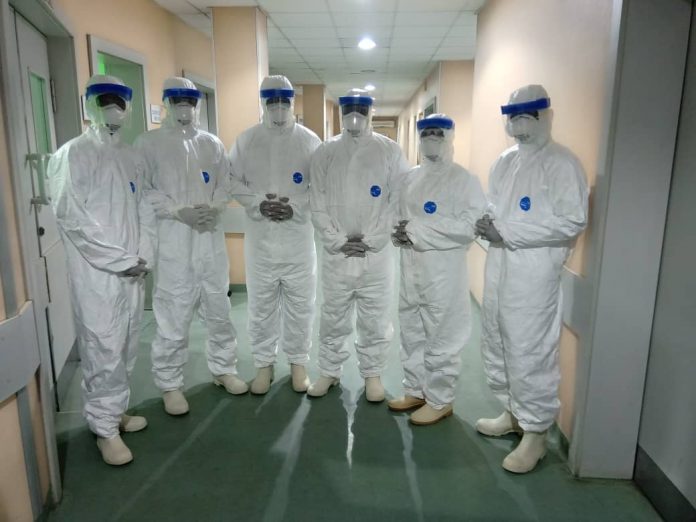Health chiefs in the UK have confirmed a Brit has contracted a strain of swine flu never before seen in Britain.
The unidentified individual thought to be from north Yorkshire, tested positive after visiting their GP with ‘respiratory symptoms’.
UK Health Security (UKHSA) bosses have yet to identify how they caught the virus. Officials are now racing to track down all contacts of the Brit, who was left battling a ‘mild’ illness.
They have also urged anyone with ‘respiratory symptoms’ to stay at home and avoid all contact with others until the illness has subsided.
The strain, H1N2, can be passed from ill pigs to humans, but only in rare cases spreads between humans.
It is different from the H1N1 swine flu that triggered the 2009 outbreak, which saw 457 deaths in the UK alone and 284,400 deaths worldwide.
People who become infected tend to suffer similar symptoms to seasonal flu, including fever, cough, runny nose, and body aches. Some may also experience diarrhoea and vomiting.
But cases are normally mild and clear up on their own in a few weeks. There is little risk of death.
Scientists say, however, that children under five, people over 65, pregnant women and those with underlying health conditions are more at risk of complications if they become infected.
The unidentified individual has now ‘fully recovered’, officials said. But the source of infection ‘remains under investigation’.
Health chiefs are now ‘monitoring the situation closely’ and increasing its swine flu surveillance programme involving GP surgeries and hospitals within north Yorkshire.
Anyone experiencing ‘respiratory symptoms’ must avoid contact with others while symptoms persist, they urged, especially the elderly or those with existing medical conditions.
The case was detected as part of routine national flu surveillance undertaken by the UKHSA and the Royal College of General Practitioners (RCGP).
Officials have also called on those contacted by the UKHSA to complete a test.
Meera Chand, incident director at UKHSA, said: ‘It is thanks to routine flu surveillance and genome sequencing that we have been able to detect this virus.
‘This is the first time we have detected this virus in humans in the UK, though it is very similar to viruses that have been detected in pigs.’
She added: ‘We are working rapidly to trace close contacts and reduce any potential spread.
‘In accordance with established protocols, investigations are underway to learn how the individual acquired the infection and to assess whether there are any further associated cases.’
Chief veterinary officer, Christine Middlemiss, also called on pig keepers to report any suspicion of swine flu to vets immediately.
She said: ‘We know that some diseases of animals can be transferred to humans – which is why high standards of animal health, welfare and biosecurity are so important.
Through our animal and human surveillance systems, we work together to protect everyone.
In this case, we are providing specialist veterinary and scientific knowledge to support the UKHSA investigation. Pig keepers must also report any suspicion of swine flu in their herds to their local vet immediately.’






